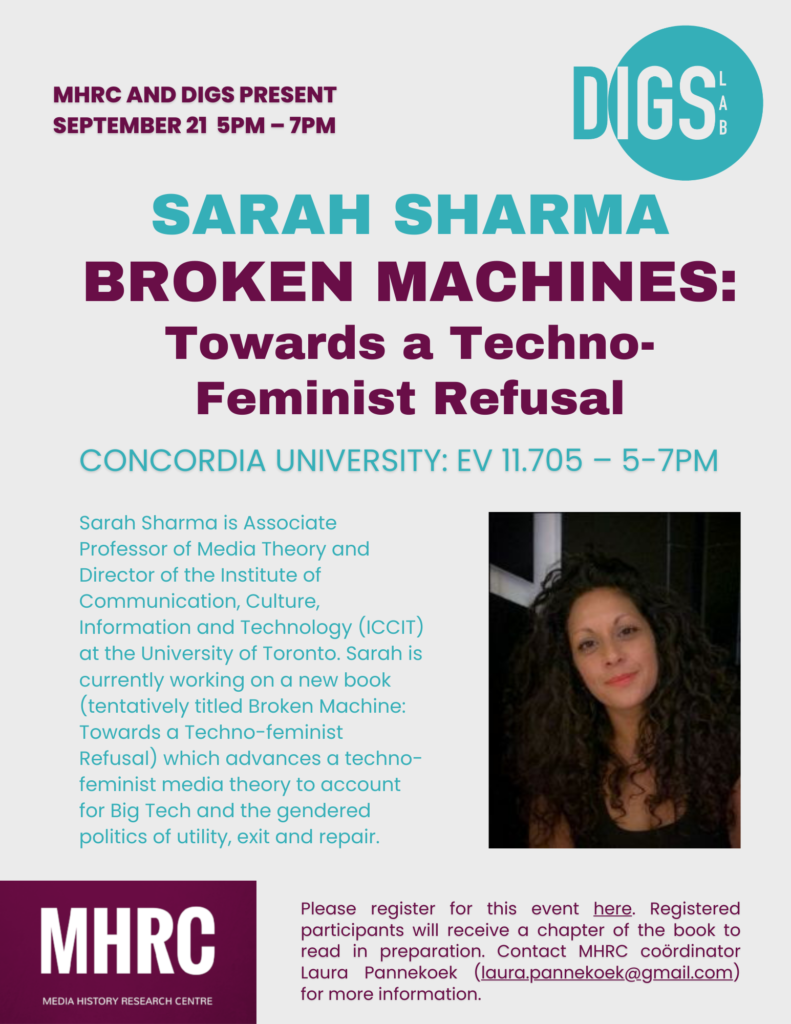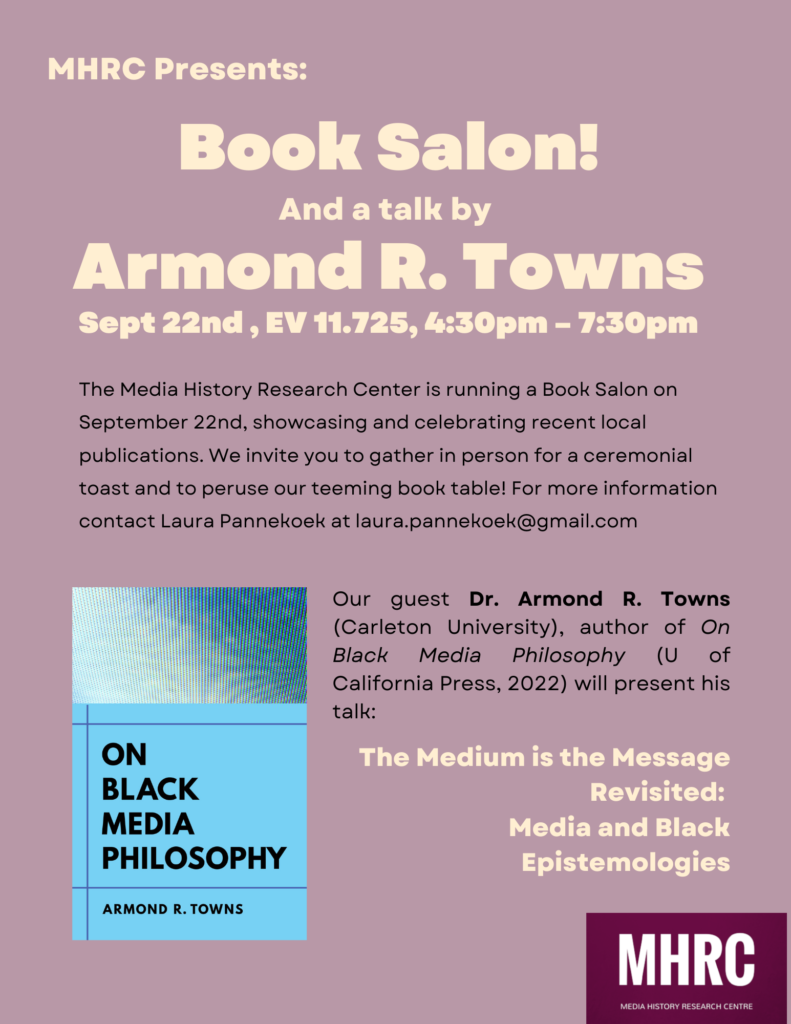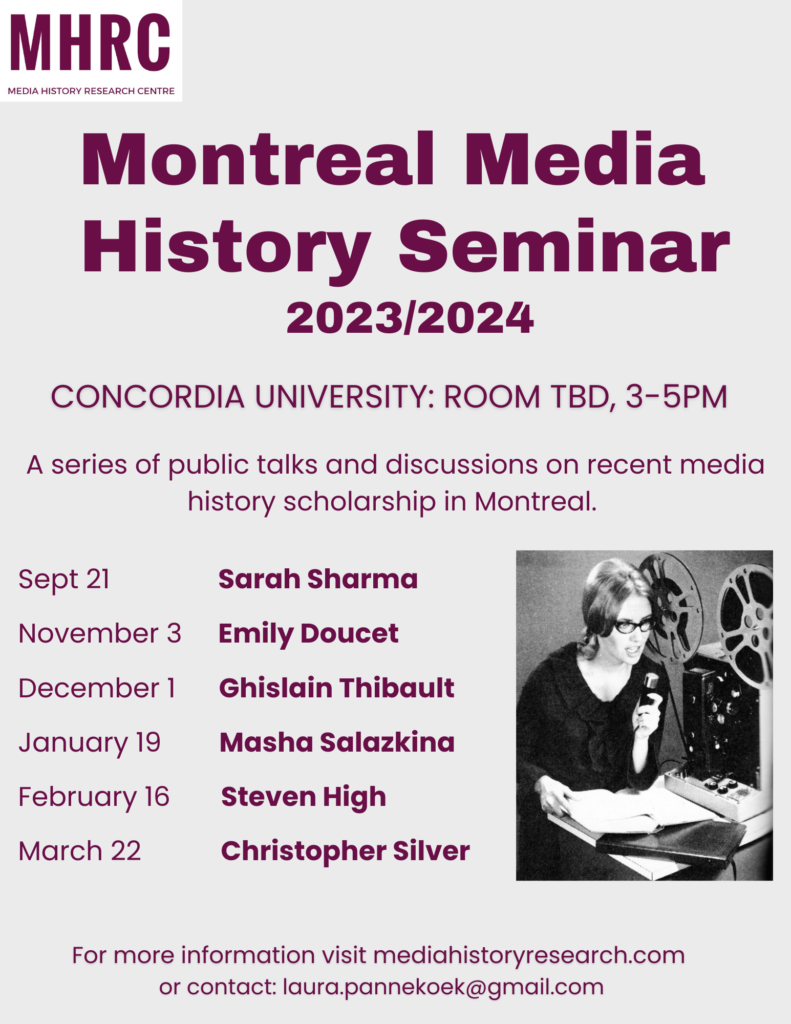September 21 – Sarah Sharma “Broken Machines”

Register for this event HERE
Following the talk, MHRC and DIGS are hosting a small graduate seminar with Sarah Sharma on September 22nd at 10 a.m. in CJ 4.223. We will be discussing the preface and introduction to Re-Understanding Media; Feminist Extensions of Marshall McLuhan. Please register for this seminar here. Those registered will receive a PDF of the reading by email.
Book Salon and Talk by Armond R. Towns

REGISTER HERE: https://www.eventbrite.ca/e/mhrc-book-salon-tickets-420915929877
The Media History Research Center is running a Book Salon on September 22nd, showcasing and celebrating recent local publications. There has been a considerable amount of local scholarly output over the last couple of years but pandemic conditions have prevented some of our more traditional ways of honouring those contributions. We invite you to gather in person for a ceremonial toast and to peruse our teeming book table!
Dr. Armond R. Towns will open our event with his talk “The Medium is the Message, Revisited: Media and Black Epistemologies,” which examines the political-economic context that informed the theoretical position of mid-twentieth century Canadian media theory, particularly the work of Marshall McLuhan. It will open up new ways to think about this context in relation to not just media, but also race, humanity, and radical politics.
Dr. Towns is Associate Professor in Media and Communication Studies at Carleton University and is the author of On Black Media Philosophy (U of California Press, 2022).
This evening also marks the first edition of the new Montreal Media History Seminar: a series of public talks on recent media historical scholarship that will run throughout 2022-23. For the full schedule click here
Come join us on Sept 22.
For more information, contact MHRC co-ordinator, Laura Pannekoek, laura.pannekoek@gmail.com

